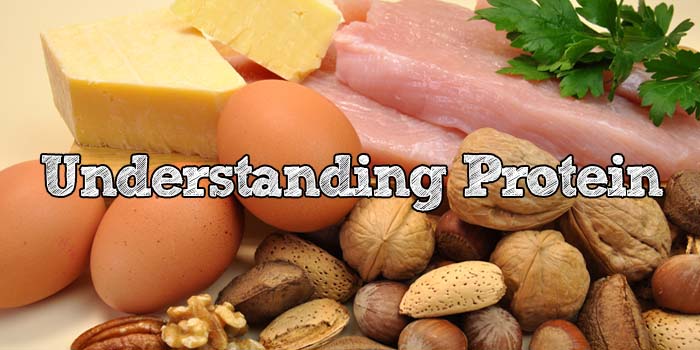
What is protein?
Proteins are one of the three macro-nutrients that are essential for the human body; they are one of the building blocks of our body tissue and serve many crucial functions within our bodies. The human body cannot function without proteins; we need it daily, luckily it is found in most whole foods. Protein can also be used as a fuel, containing roughly 4kcal (calories) per gram, carbohydrates also contain 4kcal per gram and lipids (fats) being 9kcal per gram.
Proteins are comprised of Amino Acids which are linked together by a peptide bond. When digested by humans, proteins are broken down into their smaller “building block” forms known as Amino Acids. There are over 100 amino acids but our body only uses about 21 different common amino acids to make thousands of different kinds of proteins from just the same 21 amino acids. 9 of those 21 amino acids our body needs are considered “Essential Amino Acids” (EAA), these amino acids are essential for us to live cannot be made by our body as these 9 amino acids must be consumed from a food source.
Not all sources of protein contain the same quantity of Amino Acids or same variety; some incomplete proteins only contain a smaller profile of amino acids, while others may have a full profile. This is why selecting the right types of proteins to include in your diet is important, as our body must obtain certain amino acids from our diet to prevent malnutrition and facilitate new tissue growth.
Proteins are divided into two main categories: Complete and Incomplete.
Complete proteins will contain the full spectrum or full “profile” of Amino Acids, which includes all essential amino acids that our bodies cannot produce and must be consumed from food. Examples of foods that contain complete proteins are: Animal meat protein, dairy products, eggs, seafood, and soy.
Incomplete proteins are missing several essential amino acids and only contain some of the required amino acids that the body needs. Examples of foods that are considered incomplete protein sources: vegetables, grains, nuts, seeds and legumes, hemp protein. This can become tricky for vegans and vegetarians, as they will have to selectively eat specific foods to ensure they are getting all the essential amino acids in their diet. That is where protein powders can come in, making this significantly easier for individuals on a plant-based diet to meet their protein intake.
Protein and muscle growth
How much protein you consume is important, to constantly repair and regrow lean muscle, especially from the damage of a resistance based training program, along with many other physical or athletic activities that force resistance upon the body.
For muscle hypertrophy(growth) to occur, the body requires protein.
It is important how much protein you consume, under-eating protein will cause the body to be missing the essential building blocks to muscle tissue. Protein is required for muscle repair from use and for any muscle hypertrophy to occur, if the body does not receive enough protein or energy it is forced to break down lean tissue in order to produce glucose or certain amino acids that were lacking in the individuals diet.
A high protein intake is also needed to help the body maintain balanced pH levels in the blood. Positive nitrogen balance is essential for proper growth and tissue repair as well as maintaining healthy hormonal levels, along with many other important functions that protein serves within the body.
Protein and Fat loss
A good fat loss diet will contain a significant amount of calories from protein, this is not only a great way to burn through fat but also required for many different bodily functions to occur. A beneficial effect of consuming a high protein diet when trying to lose fat is the thermic effect of food (TEF), that eating protein produces. It requires significantly more energy to digest proteins, roughly 30% more energy is required to digest protein than other macronutrients, making protein not only the most efficient calorie to consume when trying to lose fat, but also the most filling calorie.
Red meat is a great example of a slowly digested protein source that will keep you satiated for much longer than most other meals, keeping you full and your appetite down for longer. Although protein plays a big role in fat loss, it should never be about trying to “eat less”, it should always be a properly planned out, balanced diet with the correct amount of daily calories for the individual, made up of appropriate amounts of protein, carbohydrates and fats and nutrients.
Protein and recovery
Recovery is essentially the regrowth of lean tissue that has been broken down. The recovery process requires proper nitrogen balance from adequate protein intake. If you are not eating the correct amount of protein every day, your body will be in a negative nitrogen balance and the recovery process will take significantly longer to complete, ideally you want to always be in a positive nitrogen balanced state and eating sufficient protein and energy each day.
For athletes or individuals who frequently workout, train or play sports, its essential that protein intake is higher than those who do not partake in physical activity, as they will require higher levels of protein to recovery from the damage they have done to their muscles. The frequency and intensity of any physical activity will dictate how much more protein that individual is going to require for positive nitrogen balance, along with other factors, such as body weight and lean muscle mass.